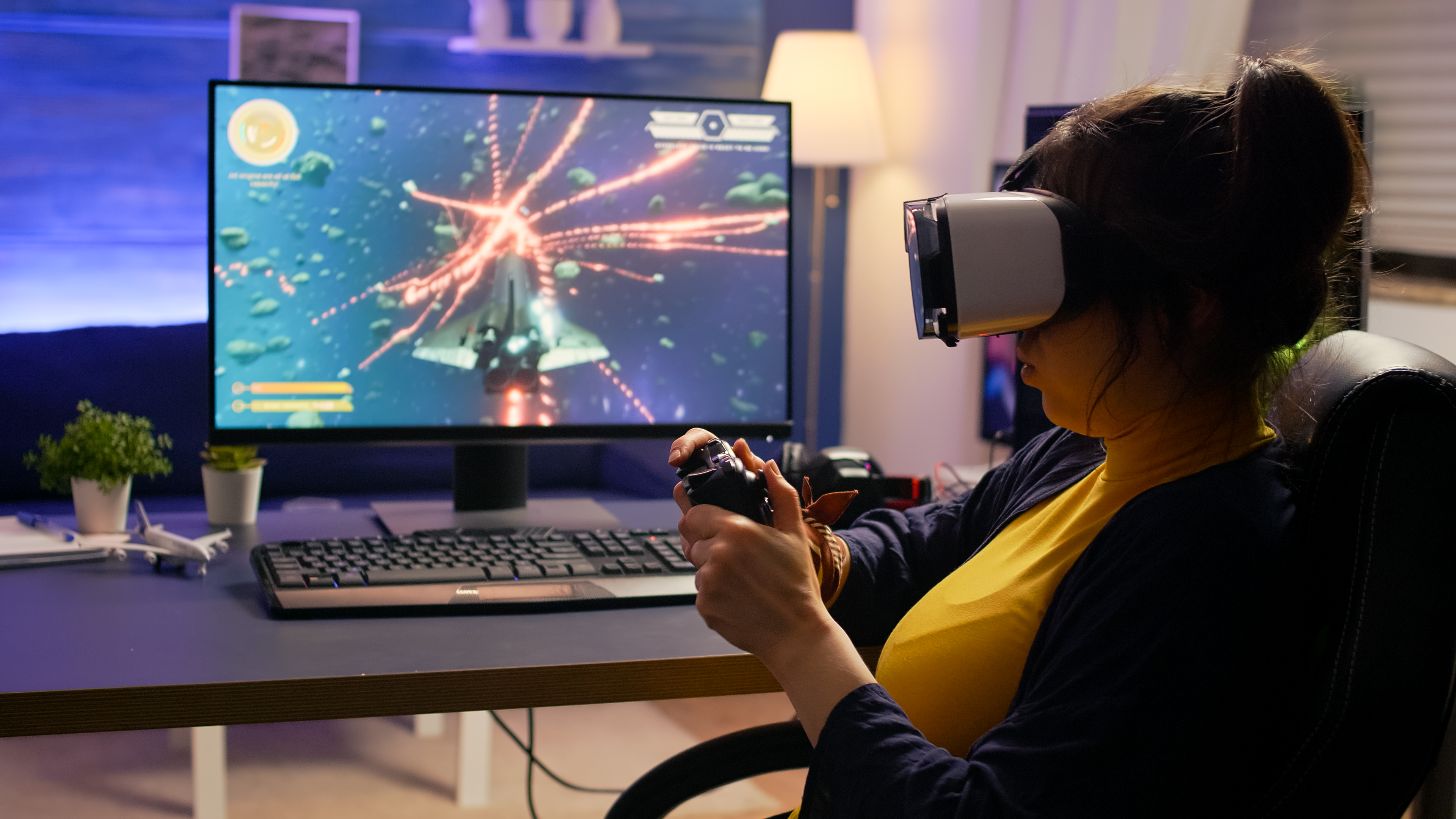Artificial Intelligence (AI) isn’t just transforming traditional industries—it’s revolutionizing the way we play, create, and experience games. If you’re passionate about gaming and technology, get ready to discover how this groundbreaking convergence is redefining the gaming industry, bringing immersive experiences, dynamic narratives, and increasingly intelligent challenges to players. This in-depth article will explore the impacts, opportunities, and challenges of AI in gaming, as well as provide practical insights for developers and industry enthusiasts.
The Evolution of Games in the Age of AI
From the earliest arcade games to today’s hyper-realistic open worlds, the gaming industry has always been driven by technological innovation. With the advent of Artificial Intelligence , the landscape has changed dramatically, allowing games to become more realistic, interactive and unpredictable.
Imagine playing an RPG where characters don’t just follow predefined scripts, but learn and adapt to your playstyle, creating dialogue and reactions that feel almost human. Or think about strategy games where AI not only adjusts the difficulty level, but also creates personalized challenges based on your skills and decisions. This new paradigm isn’t just a technological breakthrough – it’s a true revolution in the way we entertain and engage players around the world.
AI is transforming the gaming industry in many ways, from creating dynamic worlds and interactive narratives to personalizing player experiences and streamlining game development. If you want to stay ahead of the curve, it’s essential to understand how these technologies are being applied and what trends are set to shape the future of gaming .
The AI Revolution in Game Creation and Development
1. Creating Dynamic and Procedural Content
One of the areas where Artificial Intelligence shines is in procedural content generation. Instead of relying exclusively on designers to create every detail of the game, AI can generate environments, scenarios and even missions autonomously and dynamically. This technique allows each player to have a unique and personalized experience.
-
Varied Environments:
AI algorithms can create maps, scenarios, and worlds that adapt and change as the game progresses. Imagine an adventure game where each game presents different challenges and landscapes, while maintaining surprise and excitement. -
Non-Linear Storytelling:
Through natural language processing (NLP) and deep learning models, AI can build interactive stories that respond to player choices, offering multiple paths and unexpected endings. -
Automated Missions and Challenges:
With procedural generation techniques, secondary missions and challenges can be created autonomously, adjusting the difficulty and complexity according to the player’s level.
2. Intelligent Behavior of NPCs (Non-Playable Characters)
NPCs are crucial elements in creating an immersive and realistic game world. With AI , these characters can exhibit much more sophisticated and realistic behaviors:
-
Adaptive Interaction:
NPCs equipped with machine learning algorithms can adapt their responses and interactions based on the player’s actions. This makes each encounter unique, increasing immersion and emotional connection to the story. -
Strategic Decisions:
In strategy and simulation games, AI can control enemies and allies more intelligently, making matches become real challenges, with opponents that learn and adapt to your strategies. -
Humanized Emotions and Reactions:
AI allows NPCs to demonstrate emotional reactions, creating dialogue and behaviors that reflect feelings such as anger, sadness, or joy. This enriches the narrative and makes the game more engaging.
3. Personalizing the Player Experience
Artificial Intelligence is also redefining the way games adapt to the player, personalizing the experience based on their behavior and preferences:
-
Dynamic Difficulty Adjustment:
AI algorithms analyze player performance in real time and adjust the game’s difficulty level to maintain a balance between challenge and fun. -
Recommendations and Personalized Content:
Based on your choices and play style, AI can suggest new challenges, game modes, or even customize the appearance of characters and environments, creating a tailored experience. -
Feedback and Behavioral Analysis:
By analyzing data collected during gameplay, AI provides insights that help developers improve the game and provide an experience that is increasingly aligned with audience expectations.
Impacts on the Gaming Industry
1. Innovation and Competitiveness
The use of AI in the gaming industry is driving innovation and increasing competition among companies. Studios that invest in advanced technologies are able to offer more sophisticated products that stand out in a saturated market.
-
Accelerated Development:
Automating processes like content generation and code optimization allows developers to reduce production time, bringing games to market faster. -
Cost Reduction:
With AI, repetitive tasks that require high human investment can be automated, reducing costs and enabling even smaller studios to create high-quality titles.
2. Transformation of Business Models
AI- powered personalization and data analytics are transforming the gaming industry’s business models. Companies can now deliver seamless and adaptive experiences, creating new ways to monetize games.
-
Games as a Service (GaaS):
AI integration enables games to constantly evolve, offering updates, personalized events, and extra content that keep players engaged for longer periods. -
Personalized Microtransactions:
Behavioral analysis makes it possible to create offers and virtual items that are truly of interest to the player, increasing conversion rates and user satisfaction.
3. Ethical and Privacy Challenges
Despite the numerous benefits, the use of AI in the gaming industry also raises important challenges, especially in terms of ethics and privacy:
-
Data Collection:
To personalize the player experience, AI relies on the collection and analysis of large volumes of data. Ensuring the privacy and security of this information is essential to prevent abuse and leaks. -
Algorithm Transparency:
Players and regulators demand greater transparency about how AI algorithms make decisions and influence the gaming experience, avoiding practices that could be considered manipulative. -
Inclusion and Diversity:
AI should be developed in a way that promotes inclusion, avoiding biases that may marginalize certain groups or negatively influence the narrative of games.
Practical Examples of AI in Games
1. Strategy and Simulation Games
In strategy games, AI plays a crucial role in creating opponents that adapt and challenge the player. Games like Civilization and Total War use sophisticated algorithms to simulate complex strategies, providing intense and unpredictable matches.
2. RPGs and Interactive Adventures
In RPGs, NPC customization and procedural quest generation enrich the narrative. Titles like The Elder Scrolls and Fallout already explore these technologies to create living worlds, where the player’s actions directly influence the development of the story.
3. Action and Shooting Games
In shooters, AI significantly improves the intelligence of enemies, adjusting the difficulty based on the player’s performance. Games like Call of Duty and Battlefield use these features to make each battle unique and more challenging.
4. Virtual (VR) and Augmented Reality (AR) Experiences
The integration of AI into virtual and augmented reality games is creating immersive experiences that previously seemed impossible. Imagine a game where the environment autonomously reacts to your actions, providing a full, immersive sensory experience.
Challenges and Opportunities for Developers
Technical Challenges
Efficiently integrating AI into games requires advanced knowledge of programming, algorithms, and user experience design. Developers need to:
-
Invest in Infrastructure:
Implementing AI algorithms can require significant computational resources, which can be challenging for studios with limited budgets. -
Staying Up to Date:
The field of AI is evolving rapidly. To make the most of new technologies, you need to continually learn and adapt to market innovations.
Market Opportunities
Despite the challenges, the opportunities are vast for those who master the application of AI in the gaming industry:
-
Creating Innovative Games:
Developers who invest in AI can create revolutionary gaming experiences that stand out in the market and attract an audience hungry for innovation. -
Personalization and Engagement:
Games that adapt to player preferences have a higher retention rate. This personalization can translate into greater engagement, loyalty and, consequently, better financial results. -
New Monetization Models:
Using AI, it is possible to explore innovative business models, such as on-demand content, continuous updates and personalized services that increase the value perceived by the user.
Future Trends at the Intersection of AI and Gaming
The future of the gaming industry, driven by Artificial Intelligence , promises to be increasingly exciting and unpredictable. Some of the key trends to watch out for include:
1. Augmenting Immersive Reality
With the evolution of virtual reality (VR) and augmented reality (AR), AI will play a crucial role in creating dynamic and interactive environments. Games of the future could offer experiences where the virtual world adapts in real time to the player’s actions and emotions.
2. Dynamic and Interactive Narratives
The combination of AI and procedural storytelling techniques will enable games with stories that unfold based on player choices and interactions. This will result in truly personalized narratives, where every decision creates a unique path.
3. Human-Machine Collaboration
Game development could benefit from closer collaboration between humans and AI, where the machine assists in content creation and human developers focus on creative and emotional aspects. This partnership could accelerate innovation and transform the way games are designed.
4. Communities and User Generated Content
With the help of AI, player-generated content could become a powerful tool to expand and diversify the gaming experience. Platforms that enable collaborative creation of worlds and stories could become the new industry standard.
A New Horizon for the Gaming Industry
Artificial Intelligence is undoubtedly shaping the future of gaming, bringing innovations that transform the player experience and expand the boundaries of creativity. From procedurally generated worlds to NPCs that learn from their actions, the convergence of AI and the gaming industry promises increasingly immersive, personalized and challenging experiences.
For developers, this revolution represents not only a technological challenge, but a unique opportunity to stand out in a competitive market. Investing in AI means exploring new paradigms, rethinking narrative and offering experiences that truly captivate the public. For players, the future of games will be marked by unique experiences, where each game is a new adventure, shaped by their own choices and interactions.
There’s no doubt that the transformation has already begun – and those who adapt to this new scenario will have the chance to lead the next generation of innovation in the gaming universe. If you’re an enthusiast, a developer or simply passionate about games, now is the time to dive headfirst into this revolution and explore all the possibilities that Artificial Intelligence can offer.








